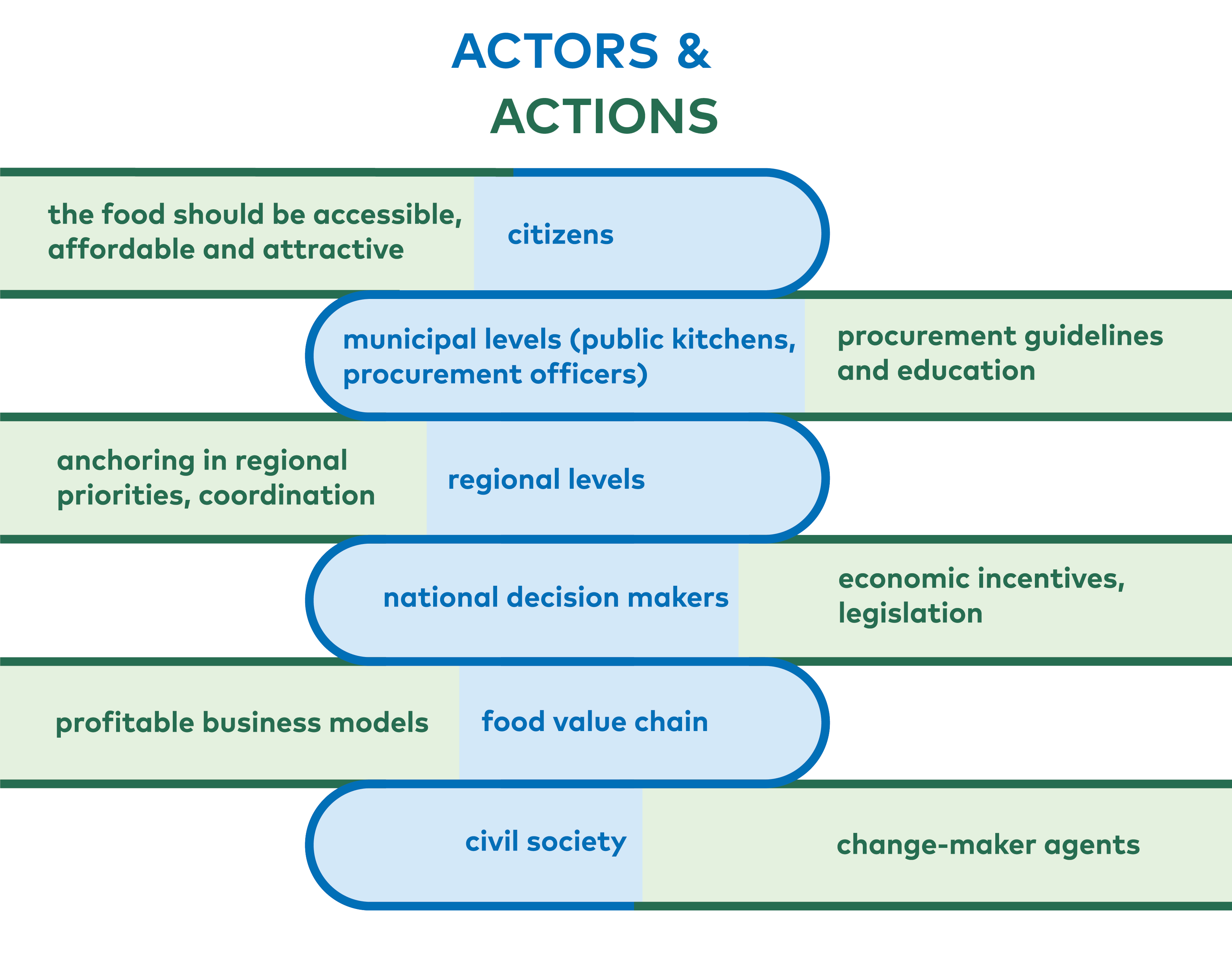A healthy and sustainable food transition
To achieve a transition of the food environment, it is important to introduce different actions and engage various actors in the process. Based on an extensive literature review, we have identified a set of actions to facilitate this transition. Figure 1 outlines key actors and actions required to achieve a healthy and sustainable transition in the food sector. These include 1) plant-based and healthy food should be accessible, affordable, and appealing to citizens, 2) working at the municipal level by establishing guidelines and providing education, 3) embedding the transition within regional strategies and priorities, exploring national level legislation to introduce economic incentives, 4) supporting the food value chain to maintain profitable business models, and finally, 5) we have emphasized the important role of civil society as agents of change
Motta A., Martín E, (2021) Food and social change: Culinary elites, contested technologies, food movements and embodied social change in food practices. The sociological review. Volume 69, Issue 3. https://doi.org/10.1177/00380261211009468
HEALTHY & SUSTAINABLE FOOD TRANSITION

Figure 1: Actors & Actions needed for a food transformation
FACT BOX
Towards a more plant-based diet:
Positive health and environmental outcomes
There is substantial scientific evidence that incorporating more plant-based options in our diets will have an impact on the environment, public health, and food security. Studies have shown that consuming more plant-based foods can reduce greenhouse gas emissions, land use, and water consumption associated with animal agriculture, and alleviate pressure on natural resources
Towards a more plant-based diet:
Positive health and environmental outcomes
There is substantial scientific evidence that incorporating more plant-based options in our diets will have an impact on the environment, public health, and food security. Studies have shown that consuming more plant-based foods can reduce greenhouse gas emissions, land use, and water consumption associated with animal agriculture, and alleviate pressure on natural resources
Wood, A., Gordon, L., Röös, E., Karlsson, J., Häyhä, T., Bignet, V., Rydenstam, T., Segerstad, L., Bruckner, M., (2019) Nordic food systems for improved health and sustainability. Baseline assessment to inform transformation. Stockholm Resilience centre. https://www.stockholmresilience.org/research/research-news/2019-04-03-within-reach.html
Greger, M., (2015) How not to die. Discover the Foods Scientifically Proven to Prevent and Reverse Disease. Nutritionfacts ISBN 978-1-250-06612-1.